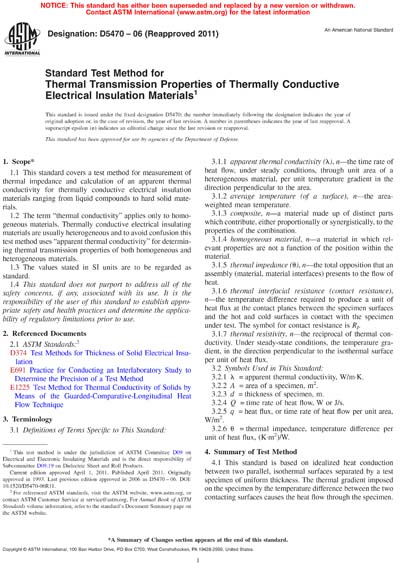Historical
ASTM D5470-06(2011)
Standard Test Method for Thermal Transmission Properties of Thermally Conductive Electrical Insulation Materials
1.1 This standard covers a test method for measurement of thermal impedance and calculation of an apparent thermal conductivity for thermally conductive electrical insulation materials ranging from liquid compounds to hard solid materials.
1.2 The term “thermal conductivity” applies only to homogeneous materials. Thermally conductive electrical insulating materials are usually heterogeneous and to avoid confusion this test method uses “apparent thermal conductivity” for determining thermal transmission properties of both homogeneous and heterogeneous materials.
1.3 The values stated in SI units are to be regarded as standard.
1.4 This standard does not purport to address all of the safety concerns, if any, associated with its use. It is the responsibility of the user of this standard to establish appropriate safety and health practices and determine the applicability of regulatory limitations prior to use.
Content Provider
ASTM International [astm]






